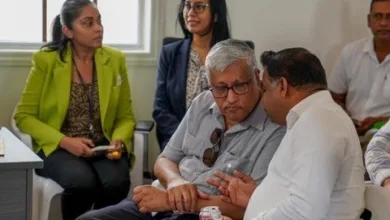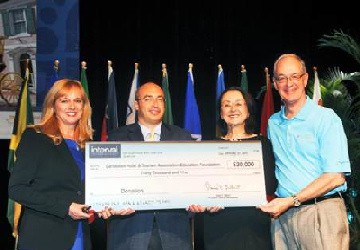Local Content Requirements Not Restrictive to CARICOM Investment


[WASHINGTON, DC] – The requirements for certain levels of local content involvement in investment and development projects in Guyana should not in any way negatively impact investment by businesses from CARICOM member states which want to do business with its South American sister CARICOM member state.
This was the view expressed Monday (June 21st) by president of the Guyanese American Chamber of Commerce, Wesley Kirton. Kirton attended at a forum put on by the Global Trade Chamber (GTC).
Responding to a comment from Jamaican American entrepreneur Karl Chung, Kirton said that he could not share Chung’s view that local content policies in the CARICOM region. Especially, those of Guyana “are restrictive to businesses from other CARICOM countries investing in Guyana.”
Chung had earlier said that the emphasis that is placed on local content. Especially on the part of some local private sector organizations in the region. As a result, they are not encouraging for regional companies to invest in each other’s economies.
But Kirton reminded Chung that “a common thread running through the legislation of all CARICOM Member States – Montserrat being an exception as a result of its particular constitutional relationship with the United Kingdom – is evidenced by the fact that in all the other 14 jurisdictions, the Revised Treaty of Chaguaramas, the foundation document of the Caribbean Community, has been incorporated into domestic law. So, CARICOM functions as a single market. Specifically with rules and regulations for the conduct of commerce and trade, both within and across borders.”
Article 33
By way of example, Kirton cited Article 33 of the Revised Treaty. This treaty provides for the Member States to institute measures to ‘remove restrictions on the right of establishment of nationals of a Member State in the territory of another Member State’.
This, he said, allows individuals as well as companies from one country to “set up shop” in another country, with certain conditions and within certain parameters. As examples of this, he pointed to Barbadian investment in a 29,000-acre farm in Guyana. And, more recently the opening of a Surinamese insurance company in Guyana. He also pointed to companies such as Grace Kennedy of Jamaica and Massey of Trinidad which currently operate in Guyana.
Additionally, Kirton also informed of investment by Guyanese owned Demerara Distillers Limited (DDL) in St. Kitts and Nevis and Jamaica.
Local Content Oil and Gas Industry
I know that have been expressions of concern about the level of local content in our oil and gas industry and that should be understood in the context that the people of Guyana expect a reasonable quality of life resulting from the oil and gas deposits. Including jobs, contracts for services such as logistics, the provision of engineering and related services. So, the expectations are that more jobs would be generated, and more services contracted to locals. And where there aren’t the skills and capacity locally, that companies going in will seek joint ventures and invest in training locals and helping to develop local capacity,” Kirton pointed out.
He encouraged Caribbean American business owners to become better acquainted with the provisions that guide trade and invest in the region. Particularly intra-regional trade since they can benefit from these provisions. Especially, if they invested first in their home countries then expanded further in other economies in the region.
‘As I understand it as explained to me by my contacts at the CARICOM Secretariat, as it currently stands, and absent any special provisions in sensitive areas such as national security or information technology, the single market provisions of the Revised Treaty which have been incorporated into domestic legislation, would allow all CARICOM nationals – individuals and firms – to freely compete or establish businesses within each other’s jurisdictions.
“These provisions I am told are at various levels of implementation within the Member States, but the legislative framework has been cast, and it is for us in the Diaspora, or US firms through strategic partnerships with CARICOM firms, to explore the possibilities for investment across the single market.,” he advised.
Delegation from Bangladesh

The forum, which also featured a high- level delegation from the Embassy of Bangladesh to the United States heard from several US business executives about goods and services which are currently trending in the US market.
Avie Friederwitzer, executive vice president of Family Food Brokers, a company that helps position manufacturers overseas to access supermarkets and wholesale distributors for their products, listed juices, rice flour and rice noodles among a host of products currently trending.
Rice Flour
Kirton said that notwithstanding the “bad taste” which the mention of rice flour may have on the mouths of Guyanese decades after a failed experiment with the product decades ago. He would encourage the possibility of Guyana looking at a return to the production of rice flour. Plus, other value added rice products for both local consumption and for export.
Investment and Trade Opportunities
The team of diplomats and private sector officials from Bangladesh brought the forum up to date on investment and trade opportunities . Specifically those available to companies in the US and throughout the Americas. The Bangladesh Ambassador in Washington, DC is also accredited as the non-resident ambassador to some countries in the region, including Guyana, the team advised.





